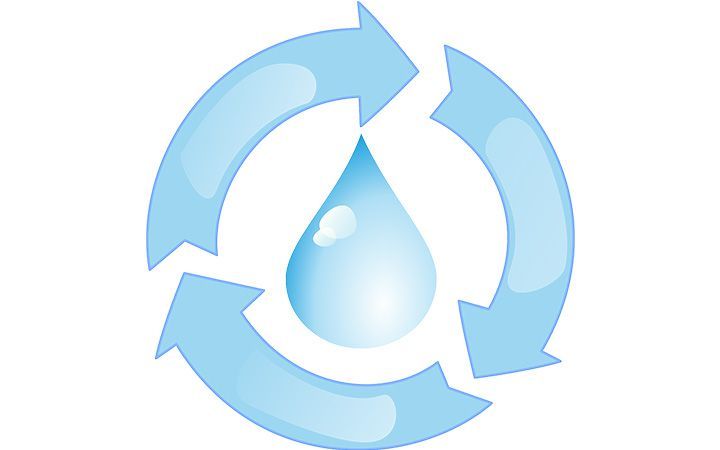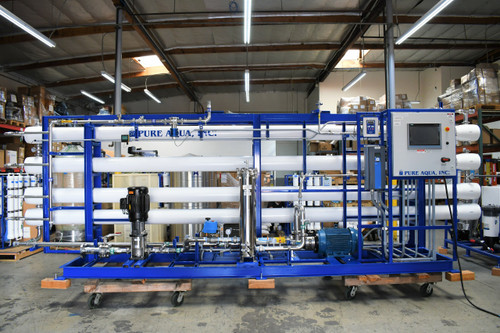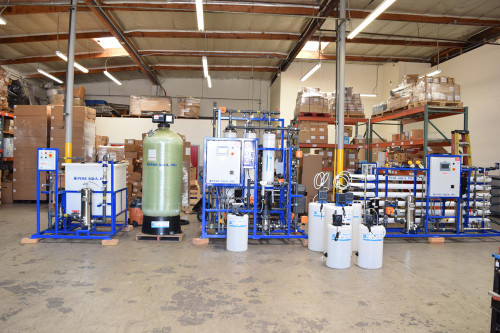Millions of people across the globe don’t have clean drinking water. As the population demand for clean water increases and our freshwater sources shrink, it is extremely important for us to do what we can for water conservation.
Water recycling, or water reuse, is reusing treated wastewater for purposes where there is no direct human contact, such as irrigation, toilets, and replenishing ground water sources. Gray water is a type of reusable wastewater that comes from residential and commercial bathrooms (sinks and bath tubs) and washing machines. Due to increasing drought conditions, municipalities are finding new ways to use treated wastewater for street cleanings, watering golf courses, and landscaping. Treated wastewater is becoming more of a resource rather than just sewage.
[custom-specifications]
What are the challenges with water reuse?
The biggest challenge with water recycling is not figuring out what technologies to use, it’s public acceptance. A huge percentage of the population is not accepting the use of treated sewage water because they are grossed out. This is the reason municipalities are having a hard time finding where they can use treated wastewater. Educating the public and helping people become more aware of the process of water reuse is very important.
For example, Southern California does not have enough fresh water sources to meet its’ populations demand for clean water. The region relies on treated wastewater and water that is moved from the Colorado River and Northern California to Southern California. Even though transporting the water takes a huge amount of energy, it is a major source of fresh water for the area. This is the reason why water districts are relying heavily on treated wastewater. For Orange County, recycled water for groundwater replenishment uses half the amount of energy of importing water, making it a viable solution.
Regardless of the water source, if the water is not properly treated, it can create health problems that arise from drinking or being exposed to the water. If there is an increased chance of human exposure, treated wastewater goes through more treatment to avoid any problems. The EPA regulates wastewater treatment and the majority of cities have specific guidelines for recycled water.
Recycled water is mainly used for non-drinking purposes, such as golf courses, agriculture, toilets, landscaping, and replenishment of ground water sources. Treated wastewater can also be used in industries such as construction, concrete, and power plants.
[/custom-specifications]
[custom-features]
Solutions:
A wide range of solutions for water recycling and reuse are available, based on exact applications:
- Membrane Biological Reactors: Packaged Wastewater Treatment Plants utilize state-of-the-art Membrane Biological Reactor (MBR) technology to achieve high treatment efficiencies within a small foot print.These plants are suitable to treat municipal and domestic wastewater with typical BOD and TSS around 250 mg/ L each. They can be easily modified to treat industrial wastewater with much higher BOD and TSS from the chemical, textile, food and beverage industries.
- Ultrafiltration Systems: Ultrafiltration Systems removes 0.01 to 0.10 micron matter, making them more reliable than conventional multimedia filters. In addition, UF membranes efficiently remove bacteria and most viruses. Spiral wound UF membranes offer excellent performance for the clarification of process water and wastewater.
- Reverse Osmosis Systems: RO systems can be a good recycling system after MBR or UF, if high quality water needed. RO systems must to be coupled with an effective pretreatment system to avoid common issues that can result in system failure, including scaling and fouling.
[/custom-features]
[custom-usage]
Advantages of water recycling and reuse:
- Water conservation awareness increases
- Municipalities can benefit from the revenue generated by selling wastewater to treatment plants
- The nutrient content of wastewater can be useful for agriculture
- Use of treated wastewater for golf courses, boiler feed water treatment, agricultural purposes, toilets, landscaping, and replenishment of ground water saves fresh water sources
[/custom-usage]
-
excellent!
This is a great source for water recycling. I highly recommend this content to learn about this subject.
- Related Project1:
- https://pureaqua.com/industrial-reverse-osmosis-plant-to-treat-reclaimed-waste-water-400000-gpd-egypt/
- Related Project2:
- https://pureaqua.com/industrial-ultrafiltration-system-120000-gpd-usa/
- Related Project3:
- https://pureaqua.com/pilot-seawater-system-for-ammonium-reduction-1300-gpd-usa/
- Related Project4:
- https://pureaqua.com/industrial-brackish-water-reverse-osmosis-machines-3x528400-gpd-uae/
 ENGLISH
ENGLISH
 ESPAÑOL
ESPAÑOL العربية
العربية PORTUGUÉS
PORTUGUÉS FRANÇAIS
FRANÇAIS













